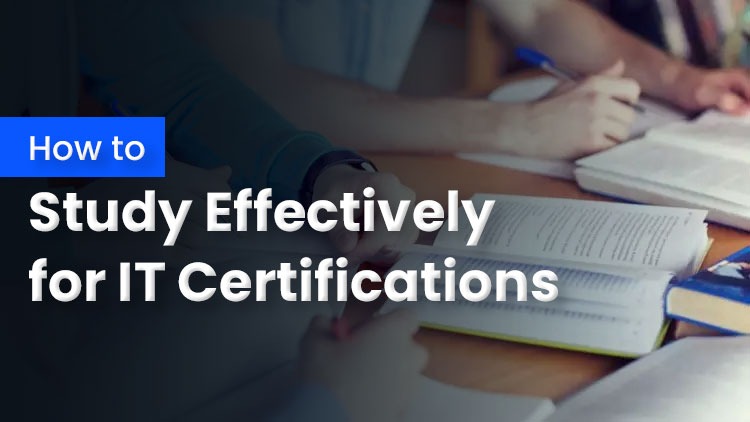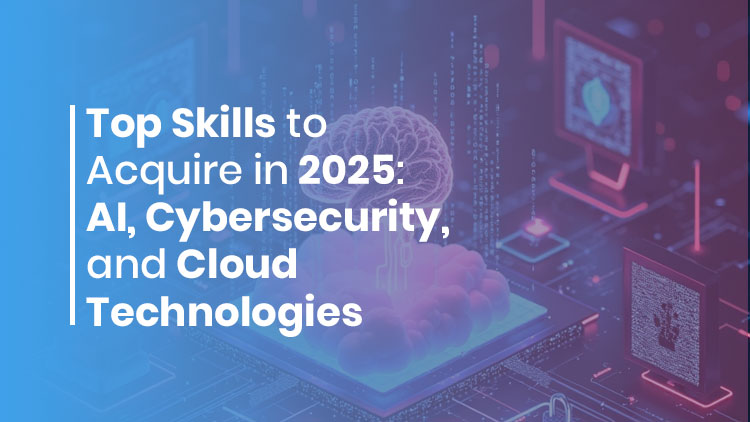
How to Study Effectively for IT Certifications

Introduction
In today’s technology-driven world, obtaining IT certifications is more important than ever. They validate your skills, enhance your employability, and can lead to better job prospects and higher salaries. However, studying for IT certifications can be daunting, especially given the complexity of the topics and the fast-paced evolution of technology. In this blog post, we’ll explore effective strategies for studying for IT certifications and provide examples of popular certifications to help you achieve your goals with confidence.
Ready to Kickstart Your Certification Journey? Earning an IT certification can be a transformative step in your career. At VERSAtile Reads, we offer comprehensive training programs and resources tailored to help you succeed. Whether you’re looking for expert-led courses, practice questions, or hands-on labs, we’ve got you covered!
About VERSAtile Reads
VERSAtile Reads offers a comprehensive selection of Practice Questions (PQs) and Exam Crams (ECNs) for all its courses, designed to enhance the learning experience and ensure thorough preparation for certification exams. These resources are meticulously crafted to align with the latest exam objectives, providing learners with relevant and challenging questions that reflect real-world scenarios. The Practice Questions help reinforce key concepts, while the Exam Crams focus on essential topics and strategies to maximize exam performance. This approach not only builds confidence but also equips learners with the critical thinking and problem-solving skills necessary to excel in their respective fields. With VERSAtile Reads, students can navigate their certification journey with the tools and support needed for success.
Understanding IT Certifications
IT certifications are formal recognitions awarded to individuals who demonstrate a specific level of knowledge, skills, and expertise in various information technology domains. Professional organizations or industry bodies typically issue these certifications and can validate a person’s proficiency in areas such as networking, cybersecurity, cloud computing, software development, and project management.
The following are key aspects of IT certifications:
Purpose and Importance
- Skill Validation: Certifications confirm that an individual possesses the skills and knowledge required for specific job roles or technologies.
- Career Advancement: Earning certifications can enhance career prospects, lead to promotions, and increase earning potential.
- Industry Recognition: Certifications are often recognized and respected across the industry, providing a competitive edge in the job market.
- Continual Learning: Many certifications require ongoing education to maintain, encouraging professionals to stay current with technological advancements and best practices.
Types of IT Certifications
- Vendor-Specific Certifications: These are offered by technology companies and focus on their products or services (e.g., Microsoft Certified, Cisco Certified, AWS Certified).
- Vendor-Neutral Certifications: These certifications cover broader topics and are not tied to specific vendors (e.g., CompTIA A+, Certified Information Systems Security Professional (CISSP)).
- Specialized Certifications: These focus on niche areas within IT, such as ethical hacking, data science, or project management (e.g., Certified Ethical Hacker (CEH), Project Management Professional (PMP)).
Popular IT Certifications
There are numerous IT certifications across different domains. Let’s look into a few of the popular certifications resources offered by VERSAtile Reads:
Fundamental Level:
- CompTIA A+
- Focus: IT fundamentals, hardware, networking, security, and troubleshooting.
- Target Audience: Entry-level IT professionals seeking foundational knowledge.
- Description: CompTIA A+ is a globally recognized certification that validates a candidate’s ability to perform tasks related to IT support and administration. It covers essential skills in hardware, software, and network troubleshooting.
- Microsoft Certified: Azure Fundamentals (AZ-900)
- Focus: Cloud concepts, Azure services, workloads, security, and compliance.
- Target Audience: Individuals new to Azure and cloud services.
- Description: This certification provides a foundational understanding of cloud services and how those services are provided with Microsoft Azure. It’s ideal for individuals seeking to understand cloud computing.
- Microsoft MS-900: Microsoft 365 Fundamentals
- Focus: Understanding the basics of Microsoft 365, including its features, benefits, and services.
- Target Audience: Individuals new to Microsoft 365 and cloud concepts.
- Description: This certification covers the core services and concepts of Microsoft 365. It is designed for those looking to understand the capabilities and benefits of the Microsoft 365 platform.
- Microsoft PL-900: Microsoft Power Platform Fundamentals
- Focus: Core components of Power Platform, including Power Apps, Power Automate, Power BI, and Power Virtual Agents.
- Target Audience: Individuals interested in understanding how to create solutions using Power Platform.
- Description: This certification helps candidates understand the functionalities of Power Platform and how to develop applications that automate business processes.
Associate Level
- Cisco Certified Network Associate (CCNA)
- Focus: Networking fundamentals, IP services, security fundamentals, and automation.
- Target Audience: Networking professionals looking to validate their skills.
- Description: CCNA is designed for those seeking to demonstrate their skills in networking concepts and technologies. It covers a wide range of networking topics, including security and automation.
- Terraform Associate
- Focus: Infrastructure as code using Terraform, including best practices and configurations.
- Target Audience: DevOps engineers and cloud professionals looking to automate infrastructure management.
- Description: This certification validates skills in implementing and managing infrastructure using Terraform, emphasizing best practices for infrastructure as code.
- Certified Information Systems Auditor (CISA)
- Focus: Information systems auditing, control, and assurance.
- Target Audience: IT auditors, audit managers, and consultants.
- Description: CISA is designed for professionals who audit, control, monitor, and assess an organization’s information technology and business systems.
Advanced Level:
- Google Professional Cloud Architect
- Focus: Google Cloud Platform (GCP) architecture and design, cloud solutions.
- Target Audience: Cloud professionals looking to validate their expertise in GCP.
- Description: This certification enables professionals to demonstrate their ability to design, develop, and manage robust, secure, scalable, and highly available solutions on GCP.
- Certified Information Systems Security Professional (CISSP)
- Focus: Information security, risk management, and governance.
- Target Audience: Experienced cybersecurity professionals aiming for leadership roles.
- Description: CISSP is a globally recognized certification that demonstrates an individual’s knowledge in designing, implementing, and managing a best-in-class cybersecurity program.
- Certified Information Security Manager (CISM)
- Focus: Information risk management, governance, incident management, and program development.
- Target Audience: IT professionals looking to advance in security management roles.
- Description: This certification focuses on information risk management and governance, aimed at security managers who design and manage enterprise information security programs.
- Project Management Professional (PMP)
- Focus: Project management principles, techniques, and methodologies.
- Target Audience: Project managers and professionals involved in leading projects.
- Description: PMP certification is a globally recognized project management credential that validates an individual’s ability to lead and direct projects.
By choosing VERSAtile Reads, professionals can take advantage of these popular products and resources, positioning themselves for success in their desired IT careers. With our comprehensive offerings, you can confidently pursue your certification goals and achieve the career growth you aspire to.
Effective Study Strategies
-
Set Clear Goals
Before diving into study materials, establish clear, measurable goals. Determine which certification you want to pursue and create a timeline for studying. Break your overall goal into smaller milestones, such as completing specific topics or chapters each week.
Example: If you’re preparing for the CompTIA Security+ exam, set a goal to finish the first three chapters of your study guide within the first week.
-
Choose the Right Study Materials
Selecting quality study materials is crucial. Look for resources that suit your learning style, whether they’re textbooks, online courses, video tutorials, or practice exams. Some popular options include:
- Books: Look for books written by respected authors or those specifically aligned with your certification.
- Online Courses: Platforms like Udemy, Coursera, and Pluralsight offer comprehensive courses tailored to specific certifications.
- Study Guides: Use official study guides from the certification authority and complement your prep with the IPSpecialist Guide for a structured review and practice questions.
- Practice Exams: Practice tests help familiarize you with the exam format and question types. Using resources like VERSAtile Reads’ Exam Cram Note (ECN) and Practice Questions (PQs) can further enhance your preparation by providing additional exam-style questions and detailed explanations.
-
Create a Study Plan
A well-structured study plan keeps you organized and accountable. Schedule regular study sessions and allocate specific times each week dedicated solely to studying. This plan should include:
- Daily Study Goals: Outline what topics or sections you will cover each day.
- Review Sessions: Incorporate regular reviews of previously covered material to reinforce your knowledge.
- Practice Tests: Set aside time for taking practice exams to gauge your understanding.
-
Use Active Learning Techniques
Active learning promotes deeper understanding and retention of information. Instead of passively reading or watching videos, engage with the material through:
- Note-Taking: Summarize key points in your own words.
- Study Cards: Create Study cards for important concepts and terms to reinforce your learning. You can also use the famous platform like IPSpecialist for quick reviews and better retention of key information.
- Group Study: Collaborate with peers to discuss challenging topics and quiz each other.
-
Practice Time Management
Managing your time effectively is essential for successful study sessions. Here are some tips to optimize your time:
- Pomodoro Technique: Study in focused blocks of time (e.g., 25 minutes), followed by a short break. This method helps maintain concentration and prevents burnout.
- Prioritize Difficult Topics: Tackle challenging subjects when you’re most alert and focused, usually early in the day.
-
Understand the Exam Format
Familiarize yourself with the structure of the certification exam. Knowing the types of questions (multiple-choice, performance-based, etc.) and the passing score can help you tailor your study approach. Many certification bodies provide exam objectives, which can guide your study topics.
-
Review and Reflect
After completing your study plan, dedicate time to review everything you’ve learned. Reflect on areas of strength and weakness, and consider taking additional practice exams to solidify your knowledge. This step is crucial for identifying any last-minute topics to focus on before the exam.
Conclusion
Studying for IT certifications is a rewarding endeavor that can significantly impact your career. By setting clear goals, choosing the right materials, engaging in active learning, and maintaining a balanced lifestyle, you can enhance your study effectiveness and increase your chances of success. Remember, persistence is key. Stay committed to your study plan, and celebrate your achievements along the way. With the right approach, you’ll be well on your way to earning your IT certification and advancing your career.
Visit VERSAtile Reads to explore our course offerings and start your journey toward certification success. Sign up today and take the first step toward elevating your IT career!
FAQs
-
How long should you study for an IT certification?
The study duration varies based on the certification level and your existing knowledge. Typically, 4-12 weeks is recommended for most certifications.
-
Are practice exams important?
Yes, practice exams are crucial for understanding the exam format and identifying knowledge gaps.
-
Can you study for IT certifications while working full-time?
Many professionals study while working by following a structured study plan and utilizing time management techniques.
- Published Date:




